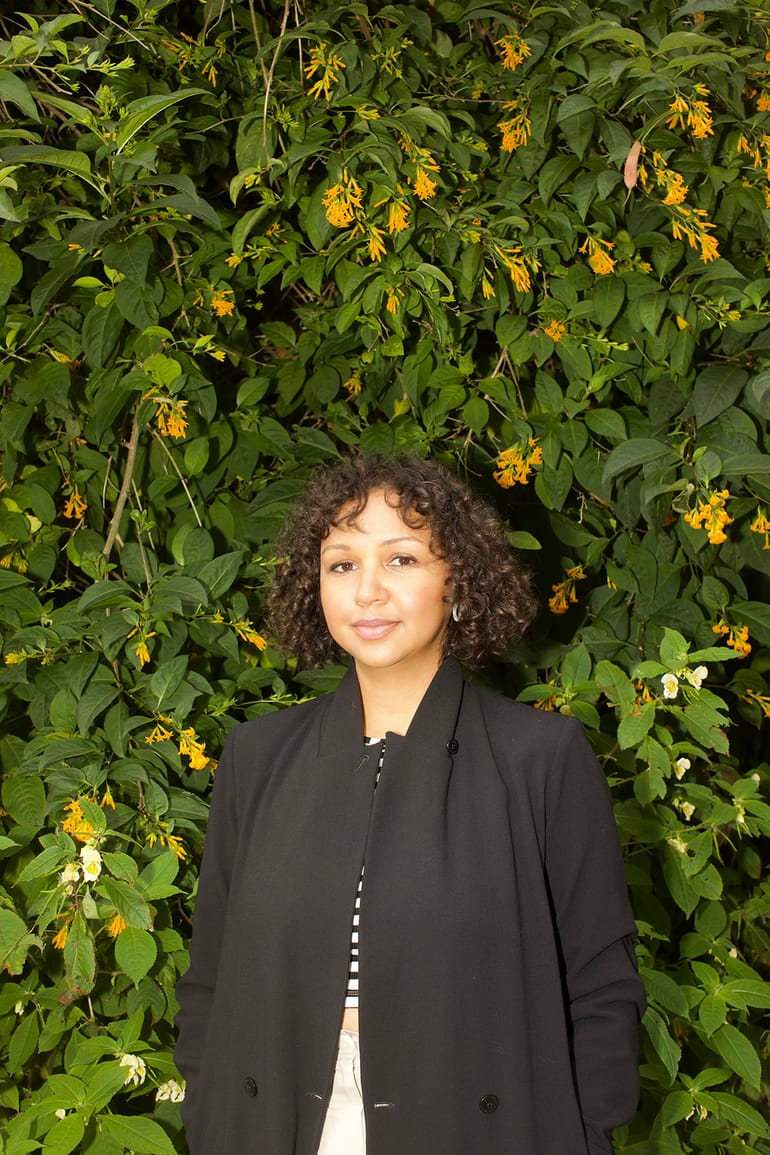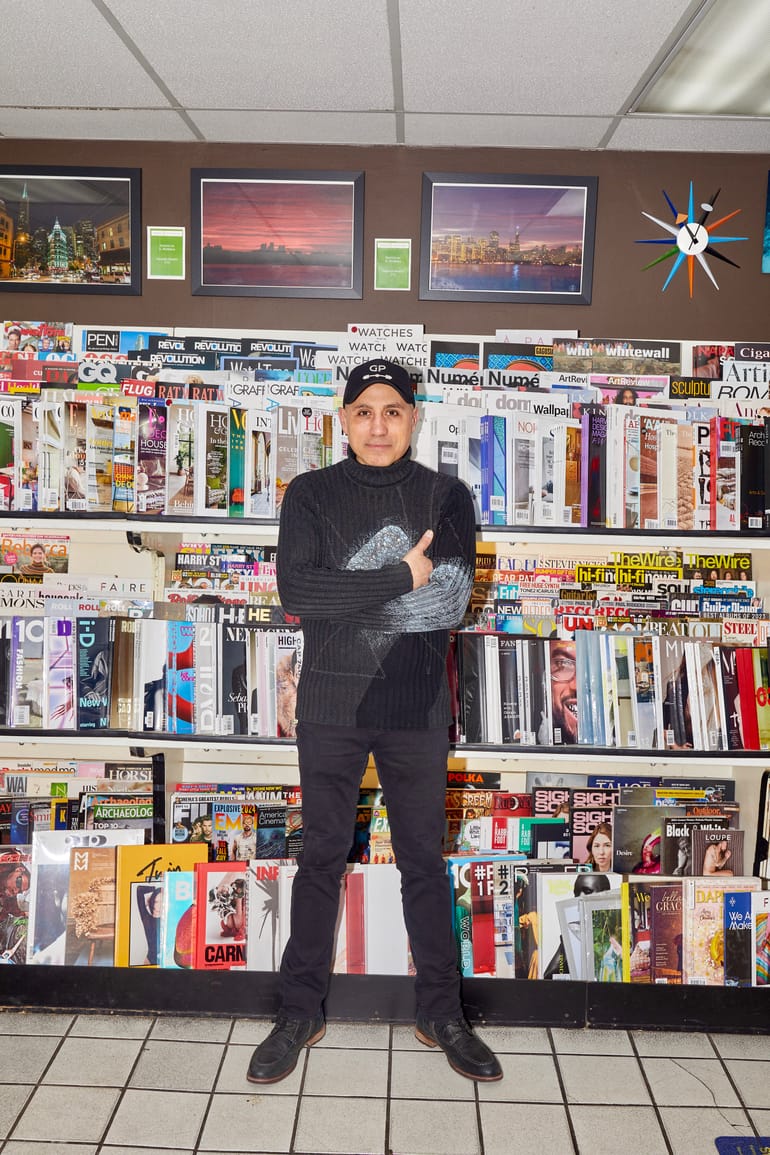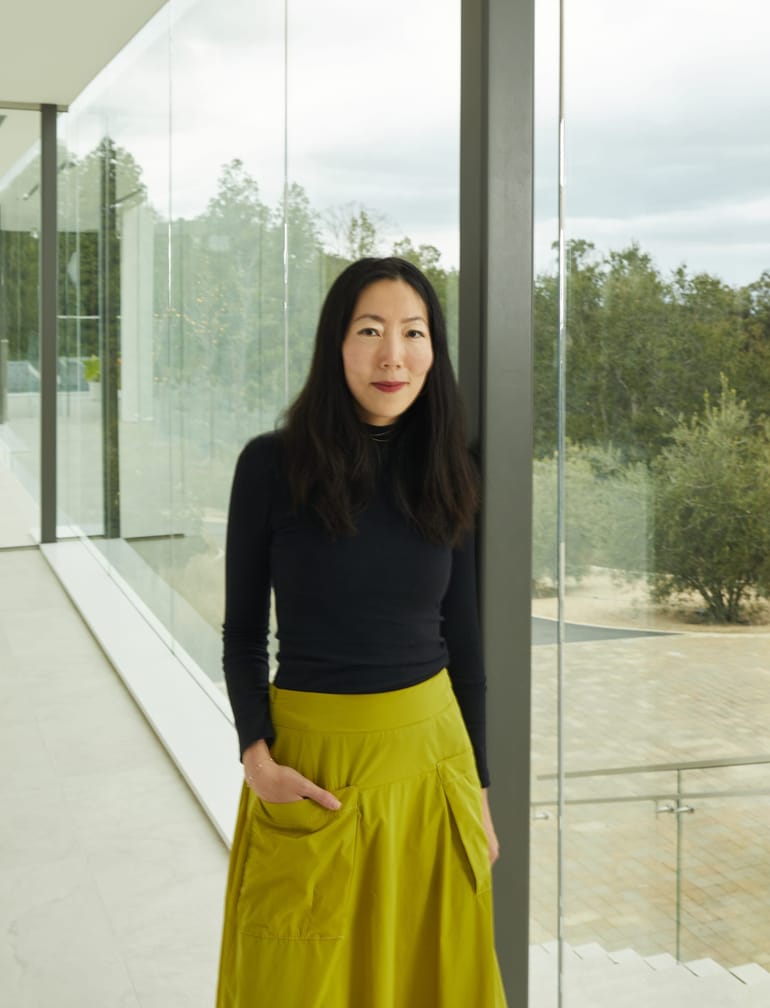On Sex, Discernment, and Support Networks
Myisha Battle is a certified sex and dating coach, author and educator. She is the owner of Sex for Life, LLC which is home to her coaching practice, writing and her podcasts, Down for Whatever and Dating White. Myisha provides empowering sexual information, instills pride in difference, and encourages the quest for sexual satisfaction no matter a person’s race, gender, orientation, ability or age. She guides her clients, listeners and readers to embrace better sex for a better life.
As the foremost feminist sex coach, Myisha offers her clients the opportunity to explore how gender and the expectations of gender roles impact their sexual desires and experiences. She provides space for her clients to grow into the kind of sexual people they want to be, not who they are told they should be.
Myisha’s advice and expertise has been featured in TIME, Refinery29, Oprah Magazine, The San Francisco Chronicle, The Washington Post, and New York Magazine’s The Cut, among many others.
Her book, This Is Supposed To Be Fun: How To Find Joy in Hooking Up, Settling Down, and Everything In Between, is available now wherever you like to buy books.

Okay, we are recording. Hello!
Hello!
Thank you so much for being here.
My pleasure.
Tell us about your business and how you got into the work you do.
I am a certified sex coach. I do dating coaching as well because, to me, sex and dating are inseparable. My fascination lies in understanding human beings and how they connect, especially since sex has always been such a taboo. It's actually a vital part of health and well-being.
It's unfortunate that many of us missed out on thorough education about our bodies and sexuality. Now, in my role as a sex coach, I see the impact of that inadequate education—how it affects people in their relationships, with partners and even with themselves. This truly feels like my life's calling, and I am so happy to be doing this work.
I'm thrilled to have you here, not only because you're an entrepreneur with a unique business but also because I want to discuss the parallels between entrepreneurship and romance. You recently published a book on dating and sex and it is such a great and informative read. I want to use it to frame our chat today.
I want to dig in on the quintessential parts of the dating journey and how in so many ways they're reflective of the quintessential parts of the entrepreneurial journey—from putting yourself out there and taking risks, to experiencing fear, experiencing shame, learning how to communicate, all of those things. How the things we learn from one journey can apply to the other, and vice versa.
Absolutely, thinking about our sexuality journey similarly to other journeys in life is insightful. Like entrepreneurship—there is no manual on it. You can read countless books, but personal beliefs and limitations ultimately dictate how you make decisions. There's no universal blueprint for entrepreneurship, just as there's no single formula for experiencing sexuality or finding the right partner. Everyone's after the 'right way,' but there are countless approaches, and each is valid based on personal goals and desired outcomes.
In my previous interview with Jing, we touched upon how people unconsciously bring their childhood wiring, misconceptions about themselves, and other emotional baggage into every aspect of their lives. Given that many of your clients are high-achieving professionals, and considering the extensive research for your book, what patterns do you observe? Specifically, what are adults unknowingly bringing into their dating or work lives that might be counterproductive?
It's interesting how my clients, whether they're partnered or single, have achieved remarkable success professionally but grapple with personal connection and intimacy. Many haven't realized that intimacy, like any other skill, can be cultivated.
There's this looming insecurity about not "doing it right" in relationships. When it comes to really letting people in, it feels daunting. Yet, they've been letting people know them in professional capacities with a lot of success. This dichotomy, this balance between success in work and challenges in personal intimacy, is something I've witnessed repeatedly.
One of my clients, an impressive woman—a literal boss—had difficulty creating intimacy with her husband. She was totally stuck. So, we tried applying her work problem-solving strategies to her personal life, and suddenly she was seeing progress. There's an interplay between societal expectations and perceived personal limitations that ultimately show up in our most intimate relationships. Some deep-seated issues might be better addressed with therapy, but in coaching, we can workshop and test solutions.
When these clients drill down to their core desires, such as wanting a fulfilling marriage or family, the predominant challenge is conquering the underlying fear that these dreams might be unattainable. But once they recognize their accomplishments in other life spheres, they start seeing the possibility of success in their personal lives too. It's a journey we embark on together, confronting those fears and realizing that their professional capabilities can be an asset, not a hindrance, to their personal goals.
“There's undeniable strength in a unique vision and in recognizing that if you want to see something in the world, others likely do too.“
In your book, you discuss themes that I feel strongly resonate with the entrepreneurial journey. One key point that stood out to me is that looking perfect isn't the endgame. If we're constantly trying to fit into a mold based on what we think others want, we lose the essence of what makes us special. So often we look to what’s most generally appealing to society, instead of looking within ourselves to offer something truly unique. Could you expand on that thought?
Yes. So I've been an early adopter of online dating from the get-go. I was in chat rooms when I was 14, and the internet gave this sense that you could be anyone, present any image. This has become the standard for how we present ourselves online today. Many people think that creating a more universally appealing version of themselves will be more digestible to others. But honestly, who wants that? Do we really want to be with someone who likes us for our most generic traits?
Everyone, deep down, wants to be acknowledged for their unique attributes. And the essence of successful relationships is so much deeper than what's on the surface. It's about understanding each other during crises, in stress, when things aren’t perfect. So it's curious why we often boil ourselves down to one-dimensional online profiles: our school, job, dog. What's pivotal in connecting is genuinely liking the person, not just their basic profile details.
Whenever I mention this to clients, they often express fear. The idea of putting out the real, raw aspects of who they are feels daunting. But that’s the real stuff of life. That’s what makes you interesting and differentiates you from the countless others who are just being average on the internet.
For sure. This is something I notice in the professional realm too. As founders, we're always in this mode of, “What do others want?” or “What does the data say?” It’s this continuous dance, and over time, we end up slowly losing sight of who we are. We keep compromising, bit by bit, in our interactions with others. Next thing we know, we’re not even building what we want anymore. It's interesting to me how there's this pull to blend in, but in doing so, we rarely get what we actually desire.
No, and it's such a disempowering feeling, believing that paring yourself down to the simplest version will be the most attractive. I really resonate with what you mentioned about building what you genuinely want. There's undeniable strength in a unique vision and in recognizing that if you want to see something in the world, others likely do too.
In my journey as a sex coach, I chose to build the business I wanted to see in the world, and pinpointing my audience took time. I've always been deeply connected to my “why,” but there were definitely moments of doubt, wondering if perhaps there wasn’t a demand for what I offer. Observing others in the same space with a more generic offering, catering to a much bigger audience and following, sometimes made me question my niche. Yet, I’ve realized that comparing based on superficial metrics doesn't resonate with me. I don't aim to replicate their mainstream success because I want to stay true to my unique identity. The audience I intend to reach seeks my voice, not someone else's. If I'm not here, who addresses their needs? This belief has anchored me, reminding me that I have a distinctive vision and that those who resonate with it are actively seeking it out.
I'd like to delve deeper into the idea of truly knowing what we want. In entrepreneurship, many of us initially chase conventional goals. We dream of growing a well-known brand, the fame and recognition, the big exit. And then, after attaining these goals and realizing they don’t fill the void, we have to evolve what we are looking for. That requires some soul-searching. Ideally, the outcome is a focus shift more towards the work itself, our underlying values, and the desire to be of service to others. I've been on that path, and I’d say I’ve walked a parallel path in my personal life.
Given your expertise, I'm curious: do you see this transition in your clients? That initial phase dominated by societal benchmarks, transitioning to a more introspective journey where they seek to define their desires, independent of what society prescribes?
I often draw parallels between our personal growth and age. For instance, in our 20s, we usually yearn for acceptance. We crave friendships and relationships where we're liked. This youthful desire can lay the foundation for lasting relationships, but it's also where we learn a valuable lesson: just because someone likes us doesn't mean they're right for us.
As we age, societal pressures push us to solidify those relationships. Whether it’s settling down, getting married, or having children, these conventions press especially hard on women. And it's not just about the narrative of settling down; there's a deeply ingrained notion that women’s lives actually “start” at these milestones. That’s where their “value” begins. It’s as if life before these moments was a prelude.
Now, in my 40s, I engage with clients who've journeyed through these societal checkpoints. Some reflect with a hint of regret, cautioning younger generations against rushing into decisions just to fit societal molds. It's essential to embrace ambiguity, to admit when we're uncertain, and to allow ourselves time to truly figure things out.
Relating this to entrepreneurship, the parallels are striking. When I first started my business, I was inundated with unsolicited advice: from the direction I should take, to when I should launch, which marketing consultants to hire, how to prioritize SEO, etc. A lot of it just felt wrong to me. Pushing against the prevailing grain of entrepreneurial wisdom is tough. But what's become clear to me is that there's no definitive playbook for being an entrepreneur. No playbook guarantees success. Success often demands our own unique set of steps and decisions.
This realization led to a crucial reckoning: do I succumb to the pressures and conform to what everyone says I should be doing at this stage of my business, or do I pause, listen to my intuition, and stay true to what I believe is right for my venture? Choosing the latter might divert from conventional routes, but it ensures I'm on a path I genuinely want to tread. This journey of discernment in entrepreneurship certainly parallels personal growth in many ways.

Something I’ve learned over the years is anyone who confidently tells you how something works actually has no idea how things really work.
People who speak with confidence are attractive. It's as if we're drawn to a parental figure who can provide clear direction. But let's be real: as adults, we don't need a “daddy” or “mommy” to guide us. What we truly need is ourselves, our community, love, patience, and guidance. We need those teammates in life who aren't afraid to tell us, “Hey, you might be going off track here.”
We often need more supportive figures around us than we think. We don't need forceful voices dictating how to succeed in any facet of our lives. And yes, it can be tough to resist those who speak so authoritatively. But, personally, I've made it a point to steer clear of such individuals when I encounter them.
“Beneath all of the business and dating advice you see online, much of it is rooted in a uniquely American, rugged individualistic viewpoint: that you have to do it all, achieve it all, and shine so brightly that everyone, including yourself, recognizes your success.”
Yeah, I think it often takes getting burned by a few self-proclaimed experts to truly realize, “Oh, this is their pattern.” It's not that they genuinely know everything; in fact, it might be the complete opposite. I've learned how to identify them now.
I’d say that’s a big inspiration for this project, actually. For me, I want to bring together competent, confident people—those who have been around the block, with wisdom to share—to confidently voice that there's no single way to approach any aspect of work or life.
I see it as a counter to the narratives we often encounter on social media today. There remains this toxic idea in today's culture that there's a definitive playbook for work, for business building, for relationships, for crafting a successful life. And it feels like we millennials, perhaps unknowingly, championed this movement. We've often chased after and portrayed this illusion of a perfect life online, myself included.
Can I get up on my socialist soapbox for a minute?
Yes.
Beneath all of the business and dating advice you see online, much of it is rooted in a uniquely American, rugged individualistic viewpoint: that you have to do it all, achieve it all, and shine so brightly that everyone, including yourself, recognizes your success.
And, you know, I know that you personally have gotten to a level that most people would look at as like the pinnacle of success. And I also know how you have struggled with identifying as being successful. And I love this project because you are turning to your community. You are turning to people and voices that can help to form a larger body of information and knowledge for people that are seeking. That is counter to that narrative of “if you failed, that's your fucking fault. Try harder.” Like it's so gross.
Yet, there's this modern notion that failure is a prerequisite for success. Let's be honest: some can afford to fail repeatedly due to the safety nets of privilege. These individuals can bounce back from multiple failures, scandals, and setbacks. But there are many who simply can't afford to fail repeatedly.
We underestimate how much we need others as a society, how much we need a supportive community. What if we reimagined a framework where everyone supports each other? A community where efforts and setbacks are shared experiences. If one person's venture doesn't pan out, the community shares in that journey, making the setback a collective experience. In such an environment, no one truly 'fails'. Unfortunately, for most of us, this kind of communal support remains elusive.
I think you’ve brought up something really important. I think most founders reading this can resonate with how isolating entrepreneurship is, and how there is an unspoken pressure to take everything on yourself, because that’s what everyone else seems to be doing. That’s what is glamorized. The rugged, individualist journey.
While the problem is systemic, could you recommend some practices that we could employ as individuals to create more nurturing, supportive systems around ourselves? It has to start with ourselves, after all.
Starting with yourself is great and it’s really the only thing you can actually control, right?
Recognizing what the systems around you are telling you is key. Are you being pushed to make decisions that aren’t aligned with how you want your relationships to be, or how you want your business to be? If so, what is it that you want to create?
Maybe it’s a kind of relationship you’re not as familiar with or involves dating different types of people than your family might expect. You then have to find communities that will support your vision.
Trying to go against the grain on your own only reinforces that rugged individualism we talked about. Having a community that sees you and understands who you are and what you’re trying to create is huge!
If you don’t think there are people out there like you who will support you, you’re wrong. They’re out there. You just have to find them.
“If you don’t think there are people out there like you who will support you, you’re wrong. They’re out there. You just have to find them.”
In your book, you talk about the importance of releasing your attachment to outcomes and finding ways to glean value from the journey. You call this achievement “dating zen.” I have a goal-oriented audience here—can you elaborate on how to balance having clear desires and goals, while simultaneously being open to all possibilities? How do we actually relax a bit and enjoy the journey?
One of the biggest challenges I see my clients grappling with is how to unplug from their ideas of success and failure in sex and dating. People are very afraid of letting go, which, in my opinion, is how you have the best sexual experiences.
Even in dating, letting go can be so helpful in getting you the kinds of relationships you want. When you have this checklist of what a person is supposed to be before you even meet them, you don’t give them and yourself the opportunity to be pleasantly surprised.
Knowing how we want to be treated is one thing, but can we honestly say we know the exact type of person that will come from? I personally don’t think so. Staying open to people and rooting into how you feel along the way allows you to let go of expectations and be available for something even better than you thought you could have.

Thank you so much for sharing your research and experience with us today. Any final wisdom you’d like to share?
It sounds cliche, but that’s probably because there’s so much wisdom there: being vulnerable and willing to be proven wrong about people (including yourself) can completely transform your dating experience. You don’t have to be anyone but yourself to be loved. But being who you are requires you to first learn who that is and then bravely put yourself out there. This is true for being an entrepreneur as well.
There’s no one exactly like you, so how can you bring that forward enough that others can see? Can you be vulnerable enough to go deeper than the external and get to the heart of what it is that you want? When you’re clear and authentically you, people who are a good fit for you can find their way to you. It’s not magic, really. It’s just being human. We all need each other, but it’s harder for us to thrive if we’re all pretending to be someone we’re not.




